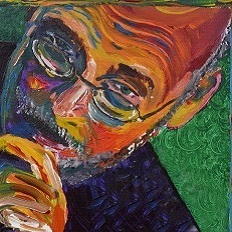Carminative
A little-known word and long-lasting snack from a long-ago physician.
Hospitalists teach a variety of learners: medical, nurse practitioner, and physician assistant students and a plethora of interns, residents, and fellows. The hospital is a natural fit as a place of education and has been for centuries. While looking at the history of hospital-based education for a talk to a group of visitors from China, I came across the story of the English surgeon John Abernethy.

This quote from him caught my interest: “The Hospital is the only proper College in which to rear a true disciple of Aesculapius.” Regular readers know that anything that mentions the Greek god of medicine, Asclepius (or his daughters Hygeia and Panacea), as well as hospital education, is going to grab my attention.
When Abernethy was just 15 years old, in 1779, he was apprenticed to a surgeon at St. Bartholomew's Hospital in London. There, he was exposed to several famous clinicians, including John Hunter and Percivall Pott (see “Pott-y Language,” April 2015 Newman's Notions). Abernethy became an extremely popular anatomy lecturer, though he was not known as a great technical surgeon. Eventually he founded the medical school at St. Bartholomew's.
Later, a colleague published all his lectures without his permission and against his will, and he lost his legal battle to regain control of this intellectual property, but luckily, he had a plan to write another text.
His book “Surgical Observations on the Constitutional Origin and Treatment of Local Diseases,” published in 1809, was his pride and joy. He made his students read it (and buy it) and quoted exclusively from it to his patients. He referred to it as “my book” so often that he acquired the name “Doctor My-Book.” His premise was that all disease comes from a disordered gastrointestinal tract.
In essence, Abernethy was an eccentric and blunt surgeon who would not tolerate dissension or disagreement with his theories. As a literary character, he makes a brief appearance in Edgar Allan Poe's “The Purloined Letter,” discussing the value of medical advice and how it should be compensated.
Toward the end of his career, he made a shift. If the television had existed then, he would likely have been on it promoting his dietary solution to excessive gastrointestinal irritation, Dr. Abernethy's Carminative Biscuit. Building on his theories about the disordered GI tract, his carminative biscuit seemed a logical step, and one that was commercially viable. Apparently, his ultimate goal was to develop a carminative solution to excessive gas formation.
At this point in my research, I wondered what the term “carminative” actually meant. Looking it up, I found that the definition is to diminish GI gas to decrease abdominal bloating or flatulence. Abernethy's biscuits contained flour, sugar, butter, baking powder, caraway seeds, milk, eggs, and salt (certainly not a recipe for gas reduction in the lactose intolerant). They are still produced in several factories in Scotland.
Dr. John Abernethy: surgeon, educator, pontificator, author. But best known as the promoter of the burp-reducing, anti-fart cookie!



